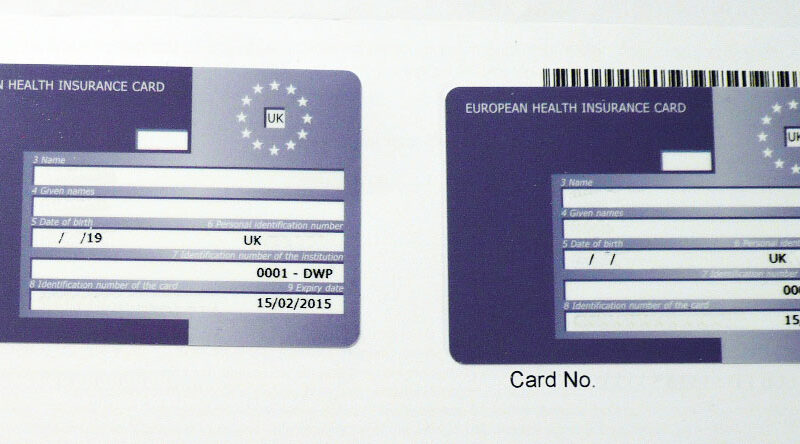Brexit and the European Health Insurance Card (EHIC) – known unknowns

David Davis, the Brexit Secretary, gave evidence to the Brexit Select Committee today. Right at the start Davis was asked by Hilary Benn what would happen to the European Health Insurance Card in the UK in the case of a no-deal Brexit (i.e. crashing out of the EU – more about that Brexit variant here). Davis’s answer was that he did not know, and that his department (DExEU) had not looked into it – demonstrating the foolishness of a non-deal Brexit as a course of action. You can his answer in the Parliament TV video here:
(please note: you might get an “Insecure Content Warning” for this video – it is because it is served over http and not https – blame Parliament!)
This – prompted by this tweet from Faisal Islam – set off a whole load of grumpy and astonished responses on Twitter, and I was foremost among the people exclaiming in anguish.
However I (and indeed the Daily Mirror that fell into the same trap here) initially understood that Davis had no idea about EHIC and Brexit in general and not only with regard to no-deal Brexit.
In the case of no-deal Brexit, Davis got it wrong. There is no dispute: being out of the EU without a deal means being out of the EHIC system. Simple. Because the only countries that are not in the EU and are in it are EEA countries and Switzerland, all of whom have deals giving them close arrangements with the EU (through the EEA, and through EFTA and bilaterally in Switzerland’s case). Crash out of the EU means crashing out of EHIC. But Davis did not say that. So where he could have given clarity – either through ignorance or malevolence he did not provide it.
However today’s debate led me to a further question: what if Britain does manage to achieve some sort of negotiated Brexit? What is the future of EHIC in that scenario?
The answer there is that, at the time of writing, we still do not know.
Despite 27 million Brits having EHIC cards (almost half the UK population), the EHIC scheme was not mentioned in February’s Brexit White Paper. All the White Paper says is “For example, we recognise the priority placed on easy access to healthcare by UK nationals living in the EU.”
The Telegraph has a pretty solid report about how EHIC and Brexit is a headache – it cites the example of Switzerland as a case that the UK could follow, but it does not say how that could work. The Health Committee of the Commons has written to Jeremy Hunt about the issue (see annexes in this PDF of a letter from Sarah Wollaston) but I can find no evidence that Hunt (or DExEU) have answered the question. One of the many amendments to the Art 50 Notification bill concerned EHIC (see “New clause 169” here), but that amendment was not included in the bill, so that is no help.
The EHIC issue, like so many of the technical matters relating to Brexit, is not as simple or straightforward as the UK Government would like. If the UK stays in EHIC, how will the finances for that be arranged? Would the EU accept a Swiss-style arrangement? Were there then disputes between the UK and the EU on EHIC, how would these be resolved? If EHIC were to not apply to the UK, what would the costs of that be? And who would bear them? And would that be a fair and egalitarian outcome? Would EU tourists be discouraged from coming to the UK if they needed extra healthcare insurance in order to do so? These are the sorts of issues that urgently need to be addressed in the case of a negotiated Brexit.
As it stands at the moment all we have for that scenario are the known unknowns I have just outlined.
Private travel insurance will blossom! In true Tory spirit 🙂
I came across a handy summary of the EU regulations governing EHIC:
http://www.ceass.ro/index.php?nav=legal&lang=en
As you said, this is much more complicated than the UK Government seem to think.
The Swiss agreement is governed by the EU-Switzerland Joint Committee (providing oversight my EHIC card at the moment). The UK have ruled out a Swiss-style solution and clearly aren’t going to remain in EEA or EFTA. The UK is therefore guaranteed to be leaving the EHIC scheme. There’s no way this could ever be negotiated in time anyway, especially not after the UK Government made the technical aspects of continuing residency rights the hottest issue of the upcoming A50 bun fight.